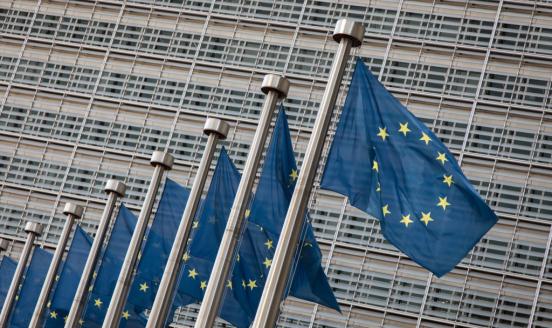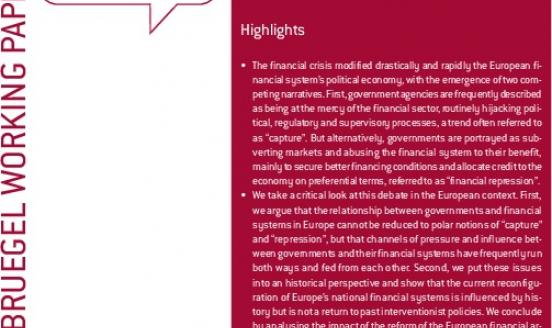The Weekender
Happy Easter, This is the last a couple of weeks before the Spring meetings of the IMF and the all important G20 ministerial meeting on April 19th w
Happy Easter,
This is the last a couple of weeks before the Spring meetings of the IMF and the all important G20 ministerial meeting on April 19th which is meant to unlock additional resources for the fund. The WP3 held in Paris this week (G10 Heads of Treasury+IMF+OECD+Commission) was an opportunity for the fund to present the broad outline of the forthcoming WEO and for the Commission to sketch the early draft of its spring forecasts. In general the mood is far from upbeat but there is a general recognition that the European firewall itself is not a solution in any case.
Meanwhile the ECB’s press conference was quite interesting, on at least two counts:
The first was the very strange position defended by Draghi about inflation differentials suggesting that: “rebalancing should be achieved, ideally, without inflating the good performers (…) I think we can have a 2% – or below 2% – inflationary rate for the whole euro area without the need to inflate the good performers. I think it’s a very feasible objective”. This statement could be read as a sign of discomfort by the ECB about inflation in Germany in the context of the ongoing wages negotiations, which is odd considering even the Bundesbank seems to accept the logic that internal rebalancing will mean higher inflation in Germany.
The second is the clarification about the rules surrounding the eligibility criteria for guaranteed bank debt in countries under a program. Indeed, the ECB has now allowed NCBs to effectively refuse to accept bank debt guaranteed by countries under a program in effect forcing the NCB of a country under a program to carry those risks on its own balance sheet. This ought to lead to an increasing degree of renationalization of banking balance sheets.
Meanwhile I will focus on the two-pack (thereafter 2pac) which to my great surprise has been largely overlooked while it is by far more important than the fiscal compact for instance:
- It is quite striking to see how the ongoing discussions revolving around the two-pack (a package of two regulations (COM(2011)819 and COM(2011)821)prepared by the European Commission, thereafter written 2pac) and the fundamental changes it would bring to the euro area governance have been overlooked both by the general public and by financial markets.
- The first regulation effectively creates the possibility of enhanced surveillance even outside of the standard Excessive Deficit and excessive imbalances procedures. The commission would have all latitude to bring a member state under enhanced surveillance and essentially force it into a financial assistance program, including on a precautionary basis.
- The second regulation effectively creates a much stronger ex ante surveillance apparatus than the existing one, including the changes set out by the 6 packs. The Commission would effectively receive a draft version of national budget by October 15th and could decide to present its opinion to the eurogroup, to the general public and before the parliament concerned.
- The sum of these two regulations provides a much more intrusive framework both in the standard budgetary process and in the context of financial assistance than has ever been designed. This is probably a positive step on both counts and will force much greater coordination and lead to a shining path towards a budgetary union as some claim.
- But the sum of all current legislative proposals (6 packs, 2pac and TSCG) still fall short of setting up a coordinated framework for discretionary fiscal policy and for the conduct of asymmetric policy across the euro area over and above automatic stabilization.
- All in all, this raises an important question about the scope for fiscal policy outside of automatic stabilization. Cyclically balanced budget rule in member states without a more important federal budget ultimately means surrendering fiscal policy completely.
Happy to have your thoughts as usual,
Best Regards,
Shahin Vallee


